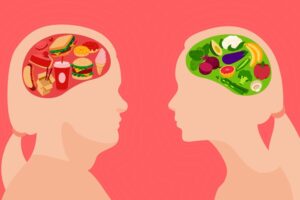
If you believe you’re addicted to benzodiazepines, you are not alone; in fact, the psychoactive drug has been responsible for nearly 1 million emergency room visits since 2008 and shows no signs of relenting. Most of those who become addicted to benzodiazepines are addicted because they have been using the drug for a prolonged period of time. Benzodiazepines are designed to be taken for a short period of time, typically a few weeks. In this article, we will detail the effects of long-term use and recognizing the symptoms of benzodiazepine addiction.
How Does Someone Become Addicted to Benzodiazepines?
Similar to other substances, prescription medications like benzodiazepines, for example, becomes more addictive once the user has stopped following their doctor’s recommendation and proceeds to take more medication than was originally prescribed to them. And when you add environmental factor along with genetic predisposition, you invariably have a recipe for addiction. So what type of high are users experiencing with benzodiazepines, exactly? Well, the drug is known for producing a sedation effect while also acting as a muscle relaxant. It also works to reduce anxiety, which, ironically, is one of the main reasons that physicians prescribe it to their patients. Obviously, genetic predisposition is self-explanatory, but what are the environmental factors that can lead to addiction? Well, factors like unemployment, peer pressure, socioeconomic status, and polydrug use are known to contribute to benzodiazepine addiction.
How To Recognize Signs Of Addiction
When it comes to recognizing the signs of drug abuse in our friends and family, we often turn a blind eye, failing to recognize signs that are apparent to everyone else. The same applies to those who fail to see the patterns and signs of abuse within themselves. That aside, what are some of the tell-tale signs of benzodiazepine addiction? Well, in addition to the inherent side effects of benzodiazepines, which include drowsiness and dizziness, those who abuse the medication may experience the following symptoms:

- Confusion
- Slurred speech
- Loss of coordination
- Breathing problems
- Extreme fatigue
- Blurred vision
It is also worth noting that in extreme cases abusing benzodiazepine can result in coma. In saying that, if you need to medication is being prescribed to remediate an illness and is taken as prescribed by a doctor, the side effects/symptoms of benzodiazepines are well-tolerated by most people. As such, if you need the medication, don’t allow the information contained in this article to discourage you from taking it.
Signs of Chronic Abuse
Unlike side effects and symptoms indicative of abuse, signs of chronic benzodiazepine use is not always that easy to spot and, for the most part, can be nonspecific. Nonetheless, common signs include uncharacteristic behavior, disheveled appearance, and poor work performance. Also, some users may experience headaches, anorexia, anxiety, and insomnia. Of course, this list is not all-inclusive; however, it does represent the most common symptoms reported by long-term users.
Psychological Dependence
Along with physical dependence, psychological dependence is also quite common among long-term benzodiazepine users. In fact, for most people, psychological dependence is often harder to overcome than physical dependence. That said, those who abruptly stop taking this medication typically experience bouts of depression and anxiety, which usually appear 3 to 4 days following the last use of the medication.
When Does Treatment Become Necessary?
If you have gotten this far in the article and have recognized symptoms, either in yourself or in friends and family, you’re probably wondering if professional drug addiction treatment is needed to overcome an addiction to benzodiazepines. Well, the answer is a resounding yes; inpatient or outpatient treatment will be needed as a means of detoxing and easing the symptoms associated with long-term use of this medication.
Whether you opt for inpatient or outpatient treatment, the recovery process is relatively the same in that a physician will work with you to gradually reduce your intake of benzodiazepines, which will help ease symptoms and prevent seizures. While professional drug treatment centers are great, successful recovery will require a strong support system, namely friends and family. As such, don’t hesitate to look to them for support as there is no shame in doing so; in fact, it is encouraged and may improve your odds of making a full recovery.
For more information, have a look at: https://www.therecoveryvillage.com/benzodiazepine-addiction/





